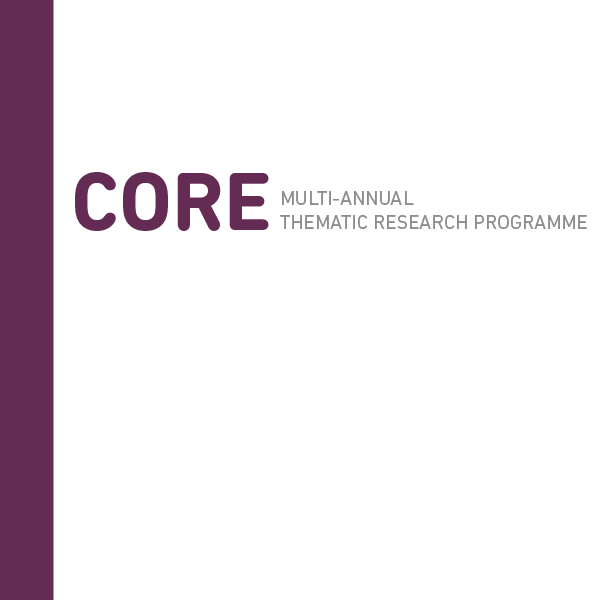In conversation with our young researchers: Morgan Raux
03 February 2023

Recruitment challenges
Recruiters have to grapple with shifting demands and recruitment challenges faced in the hiring and selection process.
Do firms respond to hiring challenges by increasing wage offers? Do they try to recruit foreign workers to address labor shortages? Which types of firms are the most exposed to hiring difficulties?
Morgan Raux is a research scientist at the department of Economics and Management at the University of Luxembourg. His research focuses on recruitment issues with a micro applied perspective.
What are the causes and consequences of skills shortages?
Recent events including the COVID-19 pandemic or the Brexit have recently highlighted the challenges raised by firms’ hiring difficulties. Yet, measures of recruitment challenges are scarce. In his research, Morgan Raux tries to make the most of unconventional data sources collected online to measure hiring difficulties at the labor market or firm level. These new measures enable him to investigate the consequences of firms’ hiring difficulties on workers and firms.
These new measures enable him to investigate the consequences of firms’ hiring difficulties on workers and firms. Do firms respond to hiring challenges by increasing wage offers? Do they try to recruit foreign workers to address labor shortages? Which types of firms are the most exposed to hiring difficulties?

In one of my papers titled “Looking for the `Best and Brightest’: hiring difficulties and high-skilled foreign workers”, I show that U.S. employers are more likely to recruit high-skilled foreign workers when they face recruitment challenges. Therefore, this research contributes to the U.S. public debate by rejecting the claim made about the displacement effect of foreign-skilled workers against natives.
Morgan Raux
Another part of Morgan’s research consists in exploring other type of issues associated with recruitment practices. In a recent paper written with Olivier Chanel and Alberto Prati, Morgan assesses the environmental and economic costs of the international job market for economists. Together, they show that the way it was previously organised before the pandemic generated thousands of tons of CO2-eq emissions and costed millions of euros to candidates and universities. They also propose alternative scenarios to structure this international job market for economists and reduce these costs.
An FNR CORE grantee
Morgan Raux came to Luxembourg to apply to the CORE Junior program of the Luxembourg National Research Fund (FNR). As a result of this grant, the researcher is acting as a Principal Investigator (PI) for a project on “Digitalisation, Change in skills and Hiring difficulties”.
Contrary to many research agencies, the FNR enables early-career researchers to apply as PI to get their research project funded. I saw this as a great opportunity to obtain the time and money to work on long-term research projects at the core of my research agenda.
Morgan Raux

CORE is a multi-annual thematic research programme and is FNR’s central programme for project funding. The prime objective of CORE is to strengthen the scientific quality of Luxembourg’s public research in the National Research Priorities.
CORE projects should directly contribute to the strengthening of the research competences in the priority fields and be of international competitiveness.
Research at heart
It was during the first year of his Bachelor’s degree that Morgan discovered the work of David Card (one of the winners of the Sveriges Riksbank 2021 Prize in Economic Sciences in memory of Alfred Nobel) on the impact of immigration on the labour market. Learning about this research literally triggered his vocation to become an economist.
In 2016, Morgan embarked on his PhD at Aix-Marseille School of Economics. Subsequently, he worked at the department of Economics at University College London as a visiting researcher during the Spring semester 2018. Then, he acted as a a PhD research fellow at the Paris School of Economics in 2019-2020. Finally, he joined the University of Luxembourg in September 2020 as a postdoctoral researcher before being promoted to research scientist.
Luxembourg, an ideal destination to conduct research on economics
Morgan Raux describes Luxembourg as an amazing place for researchers to work on topics related to the economics of migration. Indeed, both the University of Luxembourg and the Luxembourg Institute of Socio-Economic Research (LISER) stand out as major players in this field of research and have built up a community of experienced researchers.
I would definitely recommend Luxembourg as a research destination, especially for scholars working on research topics related to the economics of migration. Luxembourg is an important hub for this field in Europe. In addition, working conditions in Luxembourg are very attractive and the research community is very friendly.
Morgan Raux










